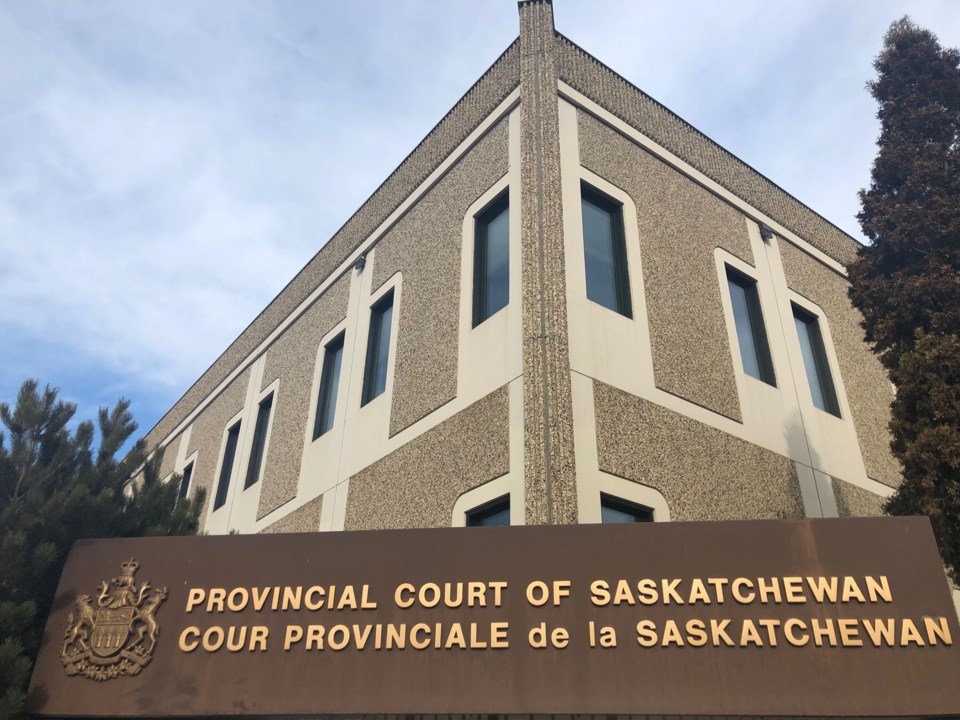Editor's note: The following information was recorded during court proceedings and is re-published without prejudice.
A provincial court judge has denied a bail request from Mahamed Bashir Farah, after determining the Edmonton man would likely fail to obey his court conditions based on past behaviour.
During a bail hearing on April 23, Judge Daryl Rayner ordered that Farah, 32, be remanded back into custody until May 4. Legal Aid could then either set a trial date or enter guilty pleas for Farah.
According to information that police previously released, Farah is charged with one count of driving while disqualified; one count of flight from police; one count of impaired operation of a conveyance; one count of dangerous operation of a motor vehicle; and six counts of failing to comply with recognizance. These allegedly occurred on April 19, where Farah reportedly fled from police and crashed his vehicle into a fence.
Judge Rayner established a publication ban that prevents the media from reporting the facts of the alleged incident. However, the reasons for his decision, and the arguments made by the Crown and defence, can be reported.
Judge’s decision
While in Moose Jaw, Farah had been on two recognizances — types of court orders — for offences from Edmonton, Rayner said. Those orders put stringent conditions on Farah, including an around-the-clock curfew that prevented him from leaving his home. Yet he was found in Moose Jaw, while his bail supervisor didn’t even know he had left his residence.
Rayner was not satisfied that Farah would attend court if he was released, especially since the man has an “extraordinarily lengthy criminal record” of 68 convictions from 2008 to 2016 that includes six previous fail to attend court charges and 28 convictions for disobeying court conditions.
“I am satisfied that detention is necessary … ,” the judge said. “There is a good abundant amount of evidence that he has breached (his Edmonton court orders) by being in Saskatchewan. My confidence … if he were to abide by any conditions he’d be released on, is greatly diminished.”
Judge Rayner acknowledged two issues that Legal Aid raised: the identity of the vehicle’s driver and keeping Farah in remand during the pandemic. Rayner noted he could not rule on the former now, while he didn’t believe the latter concern posed a significant issue since Farah appeared healthy.
Crown arguments
The Crown opposed Farah’s release, mainly because he was already on two recognizances from Alberta, where police had charged him with driving disqualified, resisting and obstructing police, identity theft, and traffic safety offences, said Crown prosecutor Stephen Yusuff.
Farah has 68 convictions over 12 years that fill six pages. Four convictions include failing or refusing to provide a breath sample; two convictions are for driving while impaired; and three convictions are for driving while disqualified.
For his past actions, in 2016 Farah received jail time of 13 months and a five-year driving ban, the Crown prosecutor continued. However, he drove anyway while in Moose Jaw and showed “wanton disregard for the safety of the community,” the vehicle’s occupants, himself, and the police officer chasing him.
Based on his criminal record and the seriousness of these offences, Farah faces serious jail time, added Yusuff. If a trial occurred, the Crown would ask for 12 to 15 months, which is “an extremely generous (and lenient) offer.”
Defence arguments
Farah was last sentenced for impaired driving in 2016, which is four years ago, said Legal Aid lawyer Tyne Hagey. She pointed out Farah’s current charges are not related to assault, violence against others, or weapons’ use.
The issue is police know what happened, but not who the driver was, she continued. The Crown also faces a serious problem with the driver’s identity. Furthermore, there is supposedly a discrepancy in eyewitness testimony of how many people were in the vehicle.
Hagey referred to two police reports and then she cast doubt on several paragraphs about the driver’s identity. She also cast doubt on whether Farah really was impaired and how fast the vehicle was going.
Farah’s release plan would see him live with his mother and sister in Edmonton, Hagey said. Both of his sisters have licences and can drive him to and from Moose Jaw for court dates. Meanwhile, a friend is willing to post $1,000 for bail, while Farah would attempt to attend a recovery centre in Edmonton.
Yusuff refuted Hagey’s comments about the alleged ambiguity of the driver’s identity and pointed to other comments in the reports as proof. The Crown prosecutor also doubted that the bail money would keep Farah from re-offending, or that he would listen to his mother and sisters.




